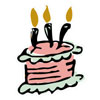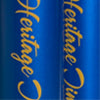We are living history as the coronavirus pandemic sweeps through the biggest cities to the smallest towns across the world. In the wake of social distancing, people everywhere are hunkering inside their homes, alone, or with family, trying to navigate through this unprecedented time. Some think we could use our time at home to reflect on our daily lives through journaling our hopes, fears and goals to create a written time capsule for ourselves and future generations. Simran Sethi of the New York Times published an article this month, "Why Mundane Moments Truly Matter" detailing how journaling, even in a few short sentences about our most uneventful days, can help bring calm and focus into our lives. These compiled notes will document our experience into a time capsule for us to read in a few months, or years from now.
In a recent study, Harvard Business School Assistant Professor, Ting Zhang asked 135 undergraduate students to put together time capsules - written notes on what music they were currently listening to, the last social event they attended and what their social media status was at the moment. Dr. Zhang said compared to the day they journaled, the students grew more interested in revisiting what they wrote over the course of three months. Zhang says, "What we wanted to do was to show that people underestimate the value of documenting the present, especially the mundane." She adds, "We hire photographers for special occasions, but don't really capture the rich day-to-day experiences that make up so much of our life."
(Lissa Jensen)
To get your family, or yourself, inspired to document life as we know it today, artist and writer, Lissa Jensen says hone your observational skills, try to stay present in "the little things" and just keep writing, no matter how few sentences or seemingly bland the day seemed. Jensen says there may be something extraordinary that comes of those trivial recollections later on. She says, "We can be messy. We can go backwards or sideways. We can be wrong. We can embrace confusion with the same tenderness as we embrace delight and joy."

























Leave a comment